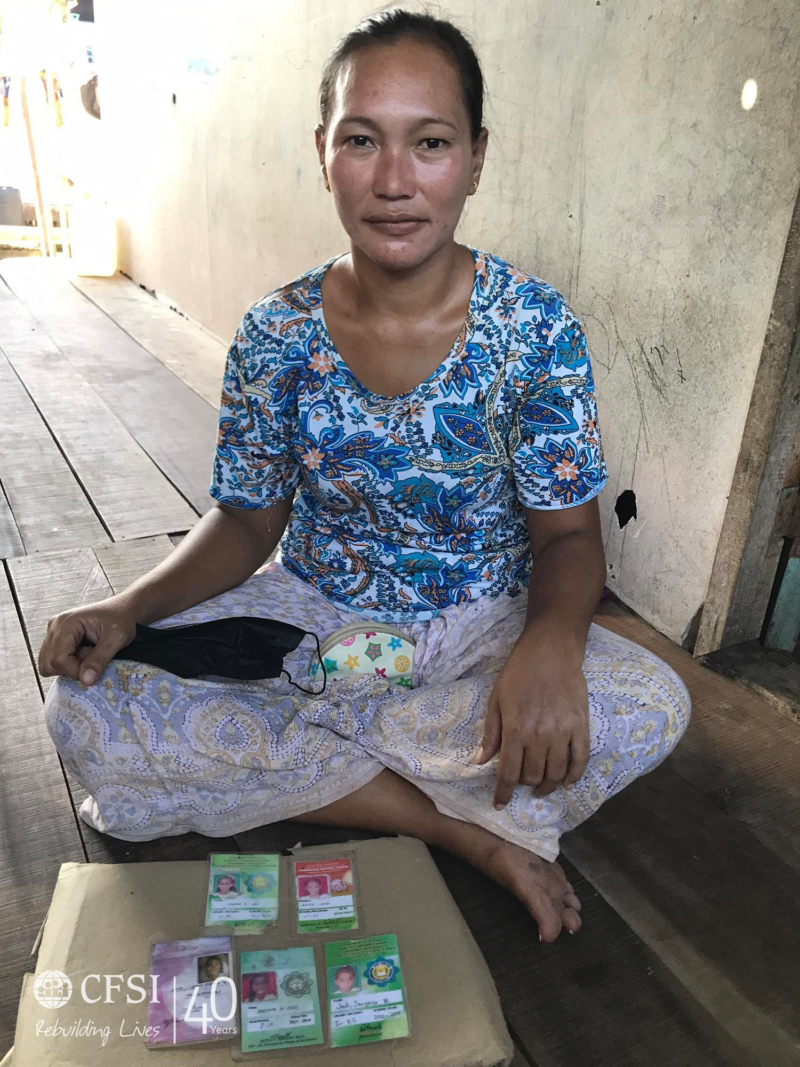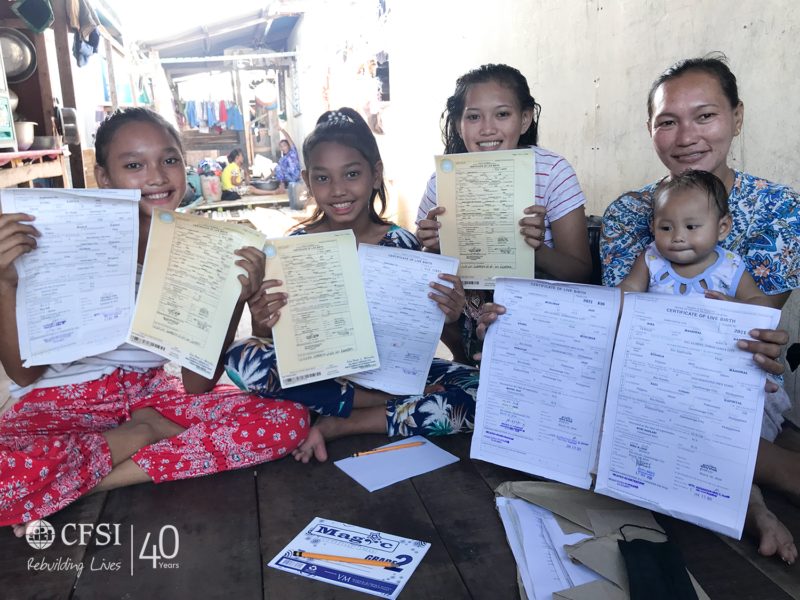Nina Jadi, 38, only reached Grade 3. Now that her daughter Shella is on the same grade level, Nina sees to it that Shella will get all the support she needs.
“As a mother, I want to provide my children the access to education, which I was not able to attain,” the mother of six reiterated.
Nina and her family are members of the Indigenous Group of Sama Bajau living in Brgy. Rio Hondo in Zamboanga City, Philippines. Nina stays at home with the children while her husband works in the market as fish vendor.
With a meager income, sending their children to school is difficult, but the couple is eager to take on the challenge.
“We strive hard to provide for our children because we know that as parents, their future relies heavily on us.”
Access to education became even harder when the COVID-19 pandemic caused schools to shut down and shift to distance learning. Parents, who did not finish formal school like Nina and her husband, find homeschooling difficult.
“We would stay up until midnight just to finish their schoolwork, but we end up submitting empty modules for subjects that are hard like the Mother Tongue (Chavacano), English, and Science,” Nina shared.
To ensure no child is left behind amidst the pandemic, Community and Family Services International (CFSI) provides tutoring sessions to Sama Bajau children in primary grade levels. Community volunteers are mobilized to assist children in answering modules in two barangays of Zamboanga City where most Sama Bajaus reside.
This initiative is part of the Sama Bajau Education Support Project Phase Two (SBESP/2) of CFSI, with funding support from Educo, supporting boys and girls in Grades Two and Three, including over-age learners. Based on the assessment, the two grade levels are the critical ones for which students need specialized support.
Nina’s family is among the 87 Sama Bajau families supported by the project.
“Shella finished Grade 1 after three attempts. I was worried last year that she would repeat Grade 2 but because of the tutoring sessions from CFSI, she proceeded to Grade 3 now,” Nina said with a smile.

Nina keeps the school IDs of her children that serve as sweet memories of their success.
Prior to the education support to the children, Nina was also part of the previous Basic Literacy Programme for Adults of CFSI where she learned how to read, write, and count. She remembered how proud she was when she affixed her signature with her name for the first time, and not by her thumbmark, which is the usual practice of the Sama Bajaus.
Her husband also received livelihood assistance from CFSI, which has been sustained until now despite the socio-economic challenges brought by the pandemic.
Their family was also assisted for birth registration which became helpful when one of her daughters, Anika, graduated from elementary school. A birth certificate is one of the major requirements for graduation.
“I keep all of their school IDs because it makes me proud of how my children were able to study. I know that it will still be a long journey for them, but I also know that as long as I and my husband work hard to provide for them, then they can be whatever they want to be,” Nina shared.

Nina (right) and her daughters proudly show their Birth Certificates that are vital to access social services and for proof of identity.
Once Shella finishes Grade 3, the family needs to enroll her in another school because the current one only offers up to Grade 3. Nina hopes that the school in their community will be able to cater to all grade levels so more Sama Bajau children can access education. For her, a child’s future becomes brighter with education, and she wants that not just for her children, but also for every child in their community. #

